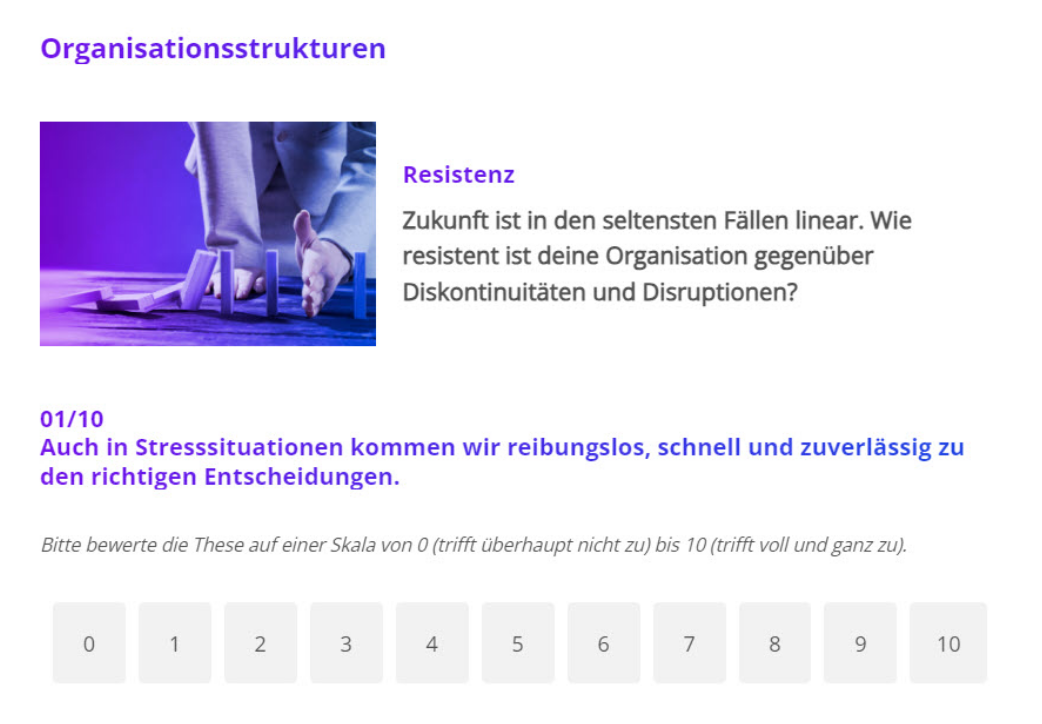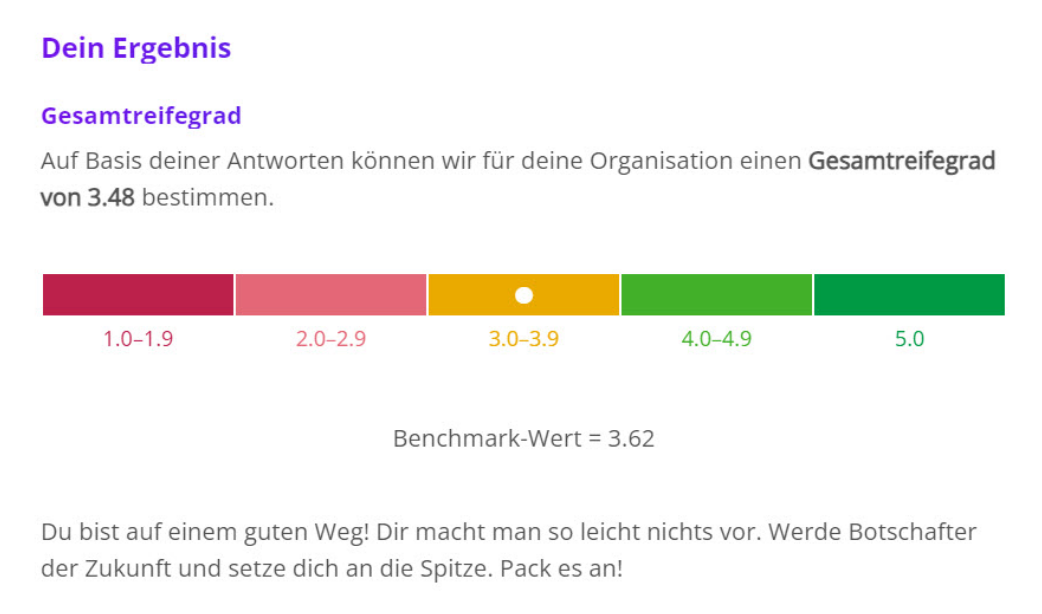How future-proof and resilient is your company?
Our experts from the scientific field of futurology have compiled a short list of questions covering the most important aspects on the future viability of a company. Use this opportunity to prepare your company for the changes that lie ahead.
Future Readiness short version

Future-proofing – a method for ensuring a secure future
Future-proofing is already being successfully developed and practiced as a planning approach in several industries (e.g. electronics, engineering, construction). In essence, future-proofing means that an architecture, of whatever kind, is planned and realized in such a way that it can essentially be maintained for as long as possible, even if requirements and components change in the future.
You can only shape the future if you are aware of where you stand today with regard to key issues and future matters, and if you are able to paint a picture of what your organization as a whole will look like in the future.
Preview Future Readiness short version
Gain a first insight into the structure of questions and the presentation of results.

Future Readiness full version
Do you wish to conduct an even more detailed analysis? Here you can access the Future Readiness full version free of charge. These questions also apply the future-proofing principles to your organization in order to evaluate your future viability, robustness and resilience. The results of the analysis are presented in a detailed results report. This service is available to you within your personal and protected myAtlas space.
Explore the Future Readiness Monitor 2024
2022
How Germany's companies rate their future viability.
TO FUTURE READINESS MONITOR 2024
Discover more interesting services
Good to know
Future-proofing is already being successfully developed and practiced as a planning approach in several industries (e.g. electronics, engineering, construction). In essence, future-proofing means that an architecture, of whatever kind, is planned and realized in such a way that it can essentially be maintained for as long as possible, even and especially if requirements and components change in the future. For the first time, this assessment performs an original transfer of ten future proofing principles to an organization (cluster 1 "Actor Potential"). The second cluster, "Environment Sensitivity", addresses two organizational environments – transactional/industry and contextual/global – thereby supplementing the actor perspective in order to create a holistic snapshot of future readiness.
The KPMG Future Readiness Index gauges the future viability of the German economy. It indicates the extent to which companies in Germany already meet the requirements essential for ensuring their success in the future. It looks at twelve key sectors of the German economy. The index is based on four dimensions: an assessment of the general mood with regard to the future ("optimism"), current self-assessment of business-critical factors ("maturity"), current activity and investment priorities ("investments") and an assessment of the relevance of twelve economic megatrends ("trend sensitivity").
If there's one thing we know about the future, it's that it is full of surprises. This is especially true for the economy, which is currently affected by crises and undergoing radical change. As such, organizations will have to become better at anticipating change processes and understanding their significance and implications if they are to remain both competitive in the long term and help drive market change – as opposed to being driven by it. Companies are faced with the question: How would we like to shape our future and how are we going to approach the opportunities and risks?







_1048x589px.jpg?sfvrsn=bc209fda_3)